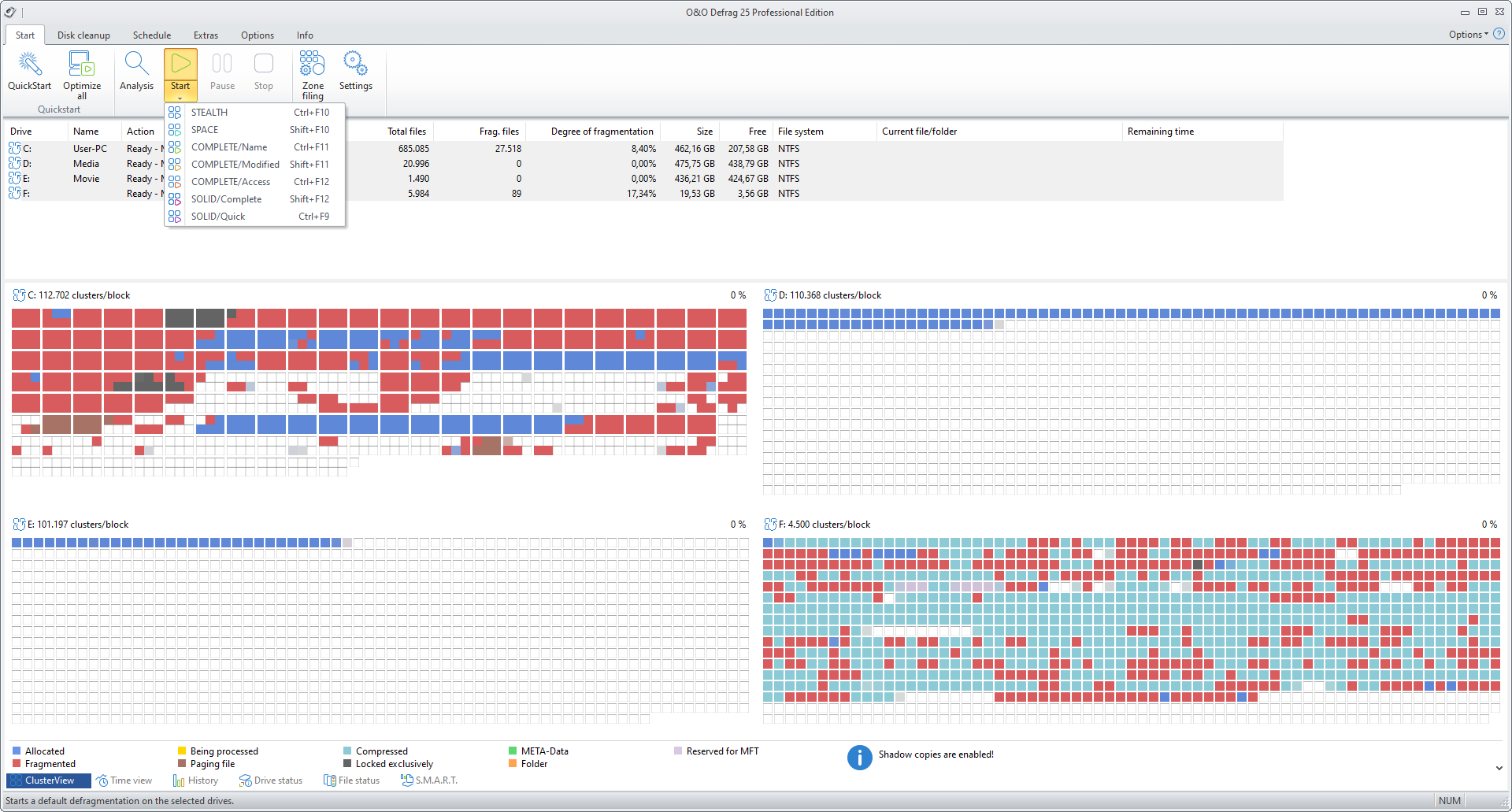In addition to the five methods for Zone filing, O&O Defrag continues to offer its seven methods for defragmenting your computer.
- STEALTH
- SPACE
- SOLID/Complete
- SOLID/Quick
- COMPLETE/Access
- COMPLETE/Modified
- COMPLETE/Name

Defragmentation methods
Note: Please bear in mind that the older methods can only be selected if zone filing is disabled.
Performance standard methods of O&O Defrag
| Standard methods | |||||
|---|---|---|---|---|---|
| SOLID/Complete | SOLID/Quick | SPACE | STEALTH | COMPLETE-Methods | |
| Defragmentation of files | + + | + + | + | + + | |
| Defragmenting the free space | + + | + + | + + | ||
| Prevention of further fragmentation | + + | + + | + | ||
| Results of high-level fragmentation* | + + | + | + | ||
| Suitability for very large files (> 4 GB) |
+ + | + | |||
| Suitability for many files (> 1 M) |
+ + | + | + + | ||
| Run time of first defragmentation** | + + | + | + + | ||
| Run time of recurring defragmentation | + + | + | + + | ||
| Required RAM | + + | + + | + | + + | |
| CPU Load | + + | + + | + | + + | |
| HDD | + | + + | + + | ||
| SSD | + + | + + | |||
| + | Very Applicable (with runtime: quick) |
| + + | Extremely Applicable (with runtime: very quick) |
* Our understanding of high-level fragmentation is a poorly maintained drive containing a large number of heavily fragmented files with little free space available.
** The run time of the first defragmentation lasts longer than with the previous version as a result of data being divided into zones.